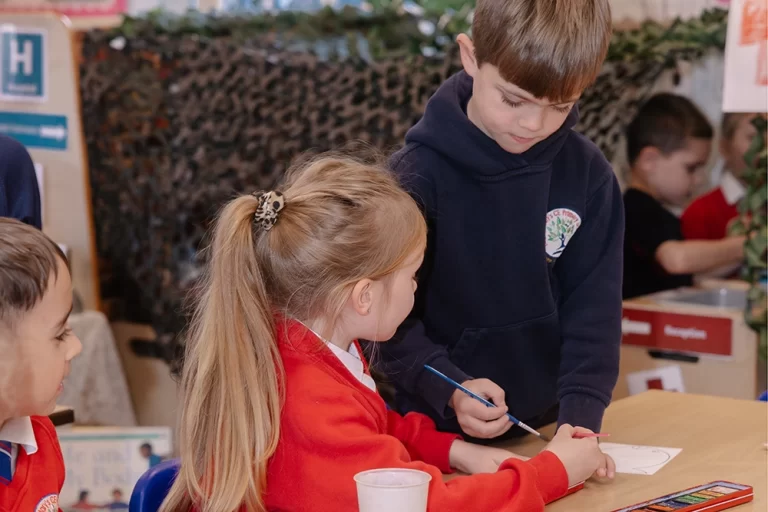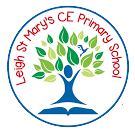Music
Intent, Implementation and Impact
Music Intent Statement
The intent of the music curriculum at Leigh St. Mary’s is to help children to feel that they are musical and to develop a life-long love of music. We focus on developing the skills, knowledge and understanding that children need to become confident performers, composers and listeners. Our curriculum introduces children to music from all around the world and across generations, teaching children to respect and appreciate the music of all traditions and communities. Over time, children will develop new musical skills and concepts and re-visit those already established. Repeating a musical skill enables children to continually make progress as skill levels shift within the spiral of learning. We use the Kapow Primary Music scheme in Early Years and Key Stage 1 and the Wigan Music Service Primary Skills Framework in Key Stage 2.
At Leigh St Mary’s we understand that there are essential characteristics that musicians demonstrate. The intent of the music curriculum from Early Years to Year 6 is to build these characteristics within our pupils.
The essential characteristics of musicians are:
- To have a widening repertoire which they use to create original, imaginative, fluent and distinctive composing and performance work.
- To have a musical understanding underpinned by high levels of aural perception, internalisation and knowledge of music, including developing levels of technical expertise.
- Very good awareness and appreciation of different musical traditions and genres.
- An excellent understanding of how musical provenance – historical, social and cultural – contributes to the diversity of musical styles.
- The ability to give precise written and verbal explanations, using musical terminology effectively, accurately and appropriately.
- A passion for and commitment to a diverse range of musical activities.
(The Essentials Curriculum, Chris Quigley Education)
Music Curriculum Implementation
At Leigh St Mary’s we use Kapow Primary Music scheme in Early Years and Key Stage 1 and the Wigan Music Service Primary Skills Framework in Key Stage 2. Our reception children also take part in the CHIME project and Year 4 have weekly Wigan Wider Opportunities sessions. These sessions teach xylophone, African drums and steel drums. There is a performance for parents and carers each term throughout the year. The school has strong links with Bedford High School who also champion the Arts and encourage collaboration with them – pupils have been part of the chorus in their annual musical stage show and have performed at Bridgewater Hall in Manchester as part of a Leigh-wide event.
Our curriculum takes a holistic approach to music, in which the individual strands are woven together to create engaging and enriching learning experiences:
- Performing
- Listening
- Composing
- The history of music
- The inter-related dimensions of music
Across each key stage children should develop and apply listening skills, knowledge and understanding through practical, creative activities that incorporate performing, composing, listening and appraising. They should experience a wide range of music from different historical periods, genres, styles and traditions, both live and recorded. There should be opportunities for them to capture and manipulate musical sounds using appropriate music technology and to develop an understanding of how music is created, produced and communicated.
“A high-quality music education should engage and inspire pupils to develop a love of music and their talent as musicians, and so increase their self-confidence, creativity and sense of achievement.”
Music Curriculum Impact
Using Kapow Primary Music curriculum and Wigan Music Service, we want to instil a life-long love of music and to encourage our pupils to be aspirational when considering the Arts. Pupils leave Leigh St Mary’s equipped with a range of skills to enable them to succeed in their secondary education and to be able to enjoy and appreciate music throughout their lives.
Pupils are able to:
★ Be confident performers, composers and listeners and will be able to express themselves musically at and beyond school.
★ Show an appreciation and respect for a wide range of musical styles from around the world and will understand how music is influenced by the wider cultural, social and historical contexts in which it is developed.
★ Understand the ways in which music can be written down to support performing and composing activities.
★ Demonstrate and articulate an enthusiasm for music and be able to identify their own personal musical preferences.
★ Meet the end of key stage expectations outlined in the National Curriculum for Music.
Music Long Term Plan
Keyword Wheel
Music Progression Map

